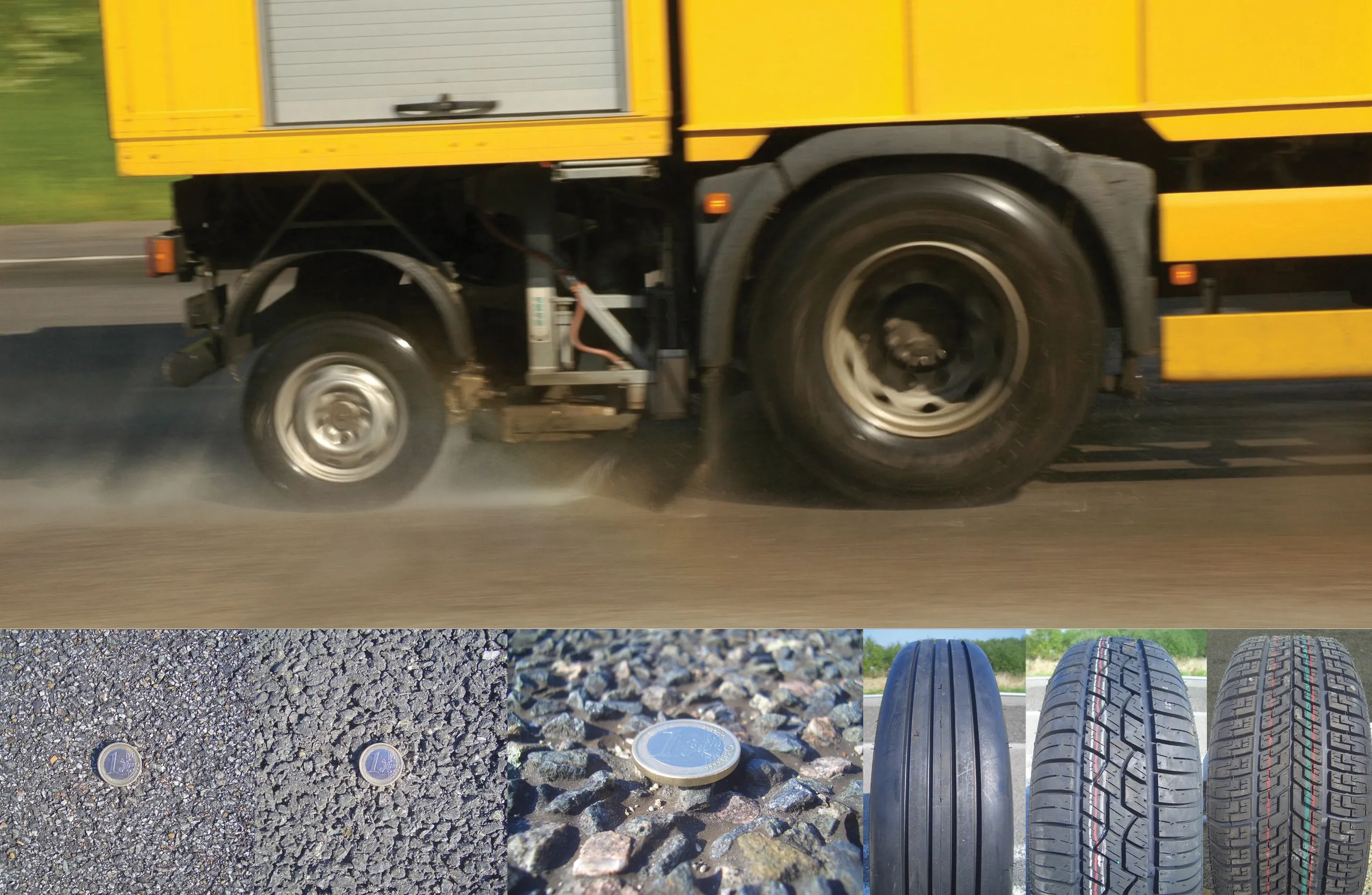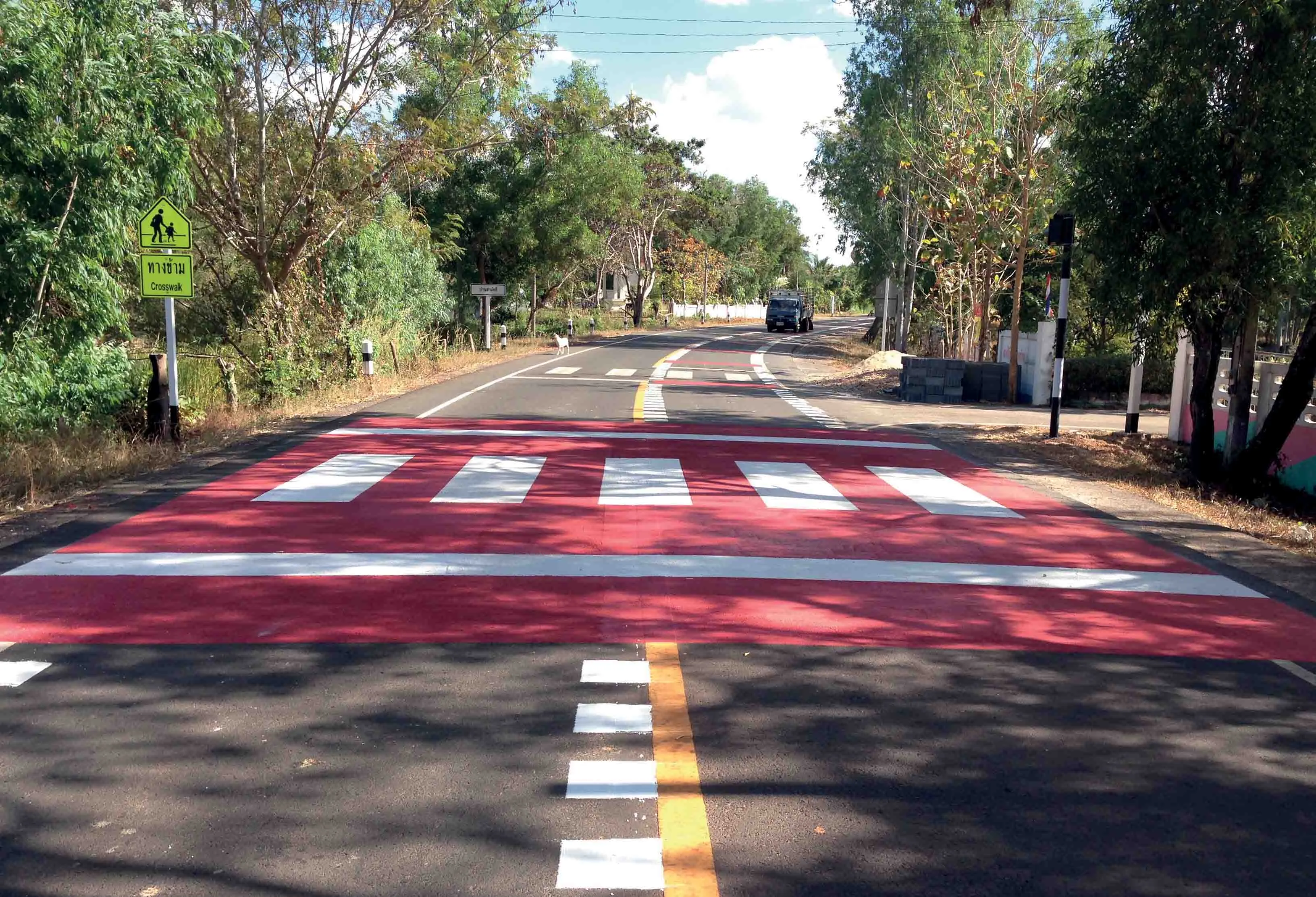For the last two years a team of European partners has been examining the interaction between vehicle tyres and road surfaces. According to the UK's TRL, one of the partners in the European project Tyrosafe (Tyre and Road Surface Optimisation for Skid resistance And Further Effects), devices to measure skid resistance were developed at the forerunner of the UK's TRL in the 1930s.
February 15, 2012
Read time: 3 mins

For the last two years a team of European partners has been examining the interaction between vehicle tyres and road surfaces.
According to the UK's777 TRL, one of the partners in the European project Tyrosafe (Tyre and Road Surface Optimisation for Skid resistance And Further Effects), devices to measure skid resistance were developed at the forerunner of the UK's TRL in the 1930s.
"Now there are lots of different types of equipment in use across Europe and around the world. Unfortunately, they operate on different principles and give different results because of the large number of variables affecting road/tyre friction," says the TRL.
The results of Tyrosafe will encourage public authorities of EU Member States to use existing and new research knowledge, to reduce fatalities, and promote environmental compatibility of road surfaces.
"The main objectives of the project were to raise awareness, to coordinate and prepare for European harmonisation, and to optimise the assessment and management of essential tyre/road interaction parameters, in order to increase safety and support greening of European road transport," says Tyrosafe, which completed its two-year project at the end of June.
The project is a coordination action funded by the European Community's Seventh Framework Programme and it consists of seven European partners (coordinator, the2682 Austrian Institute of Technology; Bundesanstalt für Straßenwesen (1369 BASt), Germany; 2686 Rijkswaterstaat Dienst Verkeer en Scheepvaart - Ministry of Transport and Navigation, The Netherlands; 2687 Slovenian National Building and Civil Engineering Institute; 1364 Forum of European National Highway Research Laboratories, Belgium; Laboratoire Central des Ponts et Chaussées (1368 LCPC), France, and TRL.
"The most significant project outcomes are the recommendations for future policies concerning road surface properties, the Roadmap and Implementation Plan for Harmonisation of Skid Resistance Measurement Techniques, and the report on influences of road surface properties on skid resistance, rolling resistance, noise emissions, their interdependencies, and the investigation of their interaction with climatic change," says Tyrosafe.
"Environmental questions concerning noise pollution, air quality, and consumption of energy are becoming more and more important. Research has shown that road surface properties can be used to achieve increased safety and reduced environmental impact of road traffic. Drivers need sufficient grip between tyres and the road to accelerate, decelerate or change direction.
"With a sufficiently high level of skid resistance, the safety of roads can be improved and the number of accidents can be reduced."
The winners of the Tyrosafe video competition to produce a short video conveying the importance and raising awareness about the interactions among tyres, roads and safety were Gregor Salobir, Alma Muminovi?, Teja Pišek, Anamarija Repuši?, Karmen Vesenjak who produced TyroSafe-CARO Your Car and Road Science Lab.
According to the UK's
"Now there are lots of different types of equipment in use across Europe and around the world. Unfortunately, they operate on different principles and give different results because of the large number of variables affecting road/tyre friction," says the TRL.
The results of Tyrosafe will encourage public authorities of EU Member States to use existing and new research knowledge, to reduce fatalities, and promote environmental compatibility of road surfaces.
"The main objectives of the project were to raise awareness, to coordinate and prepare for European harmonisation, and to optimise the assessment and management of essential tyre/road interaction parameters, in order to increase safety and support greening of European road transport," says Tyrosafe, which completed its two-year project at the end of June.
The project is a coordination action funded by the European Community's Seventh Framework Programme and it consists of seven European partners (coordinator, the
"The most significant project outcomes are the recommendations for future policies concerning road surface properties, the Roadmap and Implementation Plan for Harmonisation of Skid Resistance Measurement Techniques, and the report on influences of road surface properties on skid resistance, rolling resistance, noise emissions, their interdependencies, and the investigation of their interaction with climatic change," says Tyrosafe.
"Environmental questions concerning noise pollution, air quality, and consumption of energy are becoming more and more important. Research has shown that road surface properties can be used to achieve increased safety and reduced environmental impact of road traffic. Drivers need sufficient grip between tyres and the road to accelerate, decelerate or change direction.
"With a sufficiently high level of skid resistance, the safety of roads can be improved and the number of accidents can be reduced."
The winners of the Tyrosafe video competition to produce a short video conveying the importance and raising awareness about the interactions among tyres, roads and safety were Gregor Salobir, Alma Muminovi?, Teja Pišek, Anamarija Repuši?, Karmen Vesenjak who produced TyroSafe-CARO Your Car and Road Science Lab.








